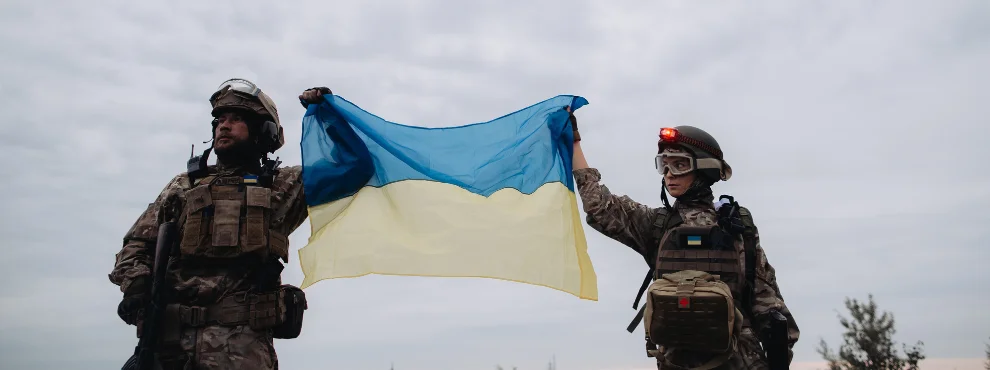No light on the horizon: Why the war in Ukraine continues
Prof. Dr. Nils-Christian Bormann from Witten/Herdecke University analyzes: As long as the warring parties and their supporters continue to act in the same way, there is no peace in sight in Ukraine.

According to conflict researcher Prof Dr Nils-Christian Bormann from Witten/Herdecke University (UW/H), the further course of the war in Ukraine depends crucially on the United States. "As long as the USA supports Ukraine militarily, the war will continue. Putin only wants to stop if he achieves his maximum goals," says Bormann. This is not just about territorial gains: "Putin's statements and actions show that he wants to eradicate Ukraine as a sovereign state and expand his sphere of influence to the west."
Putin's conditions for a ceasefire
Although Ukraine is willing to negotiate, it rejects the Russian demands. Russia is demanding
- That all occupied territories be recognised as Russian,
- that regions that Russia claims but does not control be returned,
- the permanent renunciation of Ukraine's accession to NATO,
- the drastic reduction of the Ukrainian armed forces and
- the end of Western sanctions.
Without military support from the USA, Ukraine would probably have to accept Putin's territorial claims - a de facto capitulation in stages.
The course of the peace negotiations also shows that there is no end to the war in sight. Sometimes there are intensive talks, then there are weeks of stalemate. "Whether these talks bear fruit ultimately also depends on the United States. China has no interest in a ceasefire," emphasises Bormann. Beijing benefits from the conflict: it can import cheap raw materials from Russia, sees the West embroiled in an expensive proxy war and creates geopolitical room for manoeuvre. Stable peace in Europe is not part of China's strategic calculations. Donald Trump, on the other hand, wants to be the one to bring peace - but for the time being, he too has realised that Putin is not prepared to compromise.
Why peace is still a long way off
"Peace is only possible if the costs of war become higher than the costs of peace for one side," explains Bormann. In Ukraine, this could happen if the population becomes weary of war and accepts territorial losses. In Russia, either political revolts against Putin or the economic burdens of the war would have to increase the pressure.
"We are not currently on the path to peace," summarises Bormann. Even a military defeat in Ukraine would not be a real peace: "Prisoners of war and civilians are being tortured and killed in the occupied territories."
High-tech weapons as a turning point?
Among the factors that could decisively change the course of the war are the European defence industry and military innovations in Ukraine. Effective long-range weapons, which Ukraine has just developed itself, could further increase the cost of war for Russia and hit the economy harder than the previous sanctions.
Bormann also draws a cautious lesson for the future: "War can be avoided by either negotiating with a willingness to compromise or by credibly deterring military aggression. Deterrence requires not only strong words, but also a willingness to defend: reliable armaments, political unity and the ability to retaliate against attacks immediately."
"A stable peace in Europe is possible, but only after the end of Putin's rule."
Photos for download
Contact person

Svenja Malessa
Press Officer
Administration | Communication & Marketing
Alfred-Herrhausen-Straße 48
58455 Witten
Room number: 2.F05
